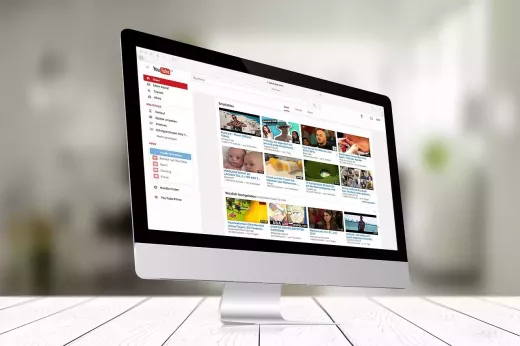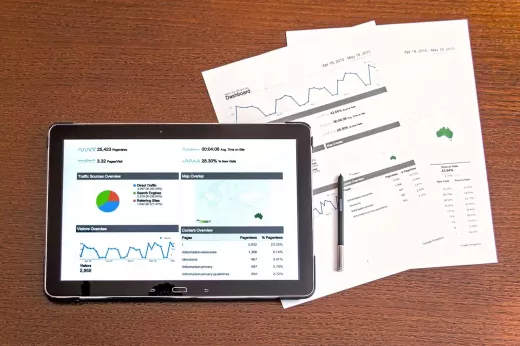What is Bitcoin?
If you've been following the news or financial media, you've likely heard about Bitcoin, the digital currency that's revolutionizing the way people transact. So what is Bitcoin? The simplest way to think about it is as a digital currency that operates on a decentralized network of computers, called a blockchain. Bitcoin was developed back in 2009 by an unknown person or group of people using the pseudonym Satoshi Nakamoto. It was created as a peer-to-peer form of online payment that doesn't need an intermediary, like a bank, to facilitate the transaction. It also operates as a store of value and is referred to as a "cryptocurrency." And because Bitcoin is decentralized, it is not controlled by any one government or central authority.
The Benefits of Buying Bitcoin
There are many reasons why people buy Bitcoin, including diversifying their investment portfolio, making online purchases, or simply storing their money in a secure way. And while there are plenty of risks and challenges associated with buying and storing Bitcoin, there are also some notable benefits, including:
- It's a growing asset class: As cryptocurrencies continue to gain popularity, more people are choosing to invest in them. This means that the overall value of the asset class is expected to increase over time, which could prove beneficial to investors who buy now.
- It's an easy way to transfer money internationally: If you need to make an international payment, it may take a long time for the funds to clear depending on the method and the country involved. With Bitcoin, however, the process could take minutes, which could be an appealing feature for certain types of transactions.
- It provides a level of anonymity: While Bitcoin can be traced when used on the blockchain, it's not as easy as tracing information associated with a credit or debit card. This could appeal to users who want to keep their information private.
- No one can freeze your account: Unlike traditional banks and other financial service providers, you can't have your Bitcoin account frozen. This means you can have complete control over your funds at all times.
Understanding Bitcoin Wallets
A Bitcoin wallet is a virtual wallet that allows you to store, send, and receive Bitcoin. When you buy Bitcoin, you'll need a place to store it, so you'll need to choose a wallet. There are many types of wallets you can use based on your preferences and needs. Here are a few common types of wallets:
- Software wallets: These wallets run as apps on your computer or mobile device and allow you to securely store your private keys offline. This means you can't access your funds through an internet connection, but this also means your funds aren't at risk of being hacked.
- Hardware wallets: These wallets store private keys offline in a piece of hardware, such as a USB drive or a smart card. They are considered one of the most secure ways to store Bitcoin because they are not connected to the internet, so they can't be hacked.
- Paper wallets: Paper wallets allow you to print out your public and private keys on a piece of paper. While they are not as secure as hardware wallets, they are an easy way to store your Bitcoin offline and away from hackers.
How to Buy Bitcoin
Once you've decided to buy Bitcoin, you'll need to choose a place to purchase it from, known as an "exchange." There are many different exchanges where you can buy Bitcoin, with some being more reputable and trustworthy than others. Before you decide which exchange to use, think about which factors are most important to you, such as the following:
- Fees: Exchanges typically charge a fee for buying and selling Bitcoin, so compare the fees of various exchanges to find one that meets your budget needs. - Reputation: Make sure you research the exchange's reputation and reviews before deciding to use it. If there are a lot of negative reviews, it could indicate that the exchange isn't safe or trustworthy.
- Payment method: Some exchanges only accept certain forms of payment, so make sure you read the exchange's terms and conditions before signing up.
Risks of Buying and Storing Bitcoin
There are many risks associated with buying and storing Bitcoin, including:
- Volatility: The value of Bitcoin is highly volatile and unpredictable. This means the price of Bitcoin is likely to change quickly and often, which could cause you to lose money or miss out on investment gains.
- Scams: There are many fraudulent schemes out there, like fake exchanges that steal your money, so make sure you thoroughly research any exchange you use.
- Taxes: If you use Bitcoin to make purchases or receive payments, you may be responsible for paying taxes on those transactions. This could be challenging if you can't identify who made the transaction.
- Hackers: While you can protect yourself from certain types of fraud, like fake exchanges, there's not much you can do if your exchange gets hacked.
- Lack of regulation: Bitcoin is not regulated by any central authority, which means you are responsible for securing your funds and understanding any associated risks.
- Price fluctuation: Because Bitcoin's value is so unpredictable, there's no guarantee that the amount you buy will be worth the same amount in the future.
Advantages of Owning Bitcoin
Now that you understand the risks associated with buying and storing Bitcoin, let's take a look at the advantages of owning Bitcoin. Some of the major benefits of owning Bitcoin include:
- It's borderless: You can send and receive Bitcoin anywhere in the world.
- It cuts out the middleman: There are no banks or third parties involved in transactions using Bitcoin.
- It's decentralized: Unlike many other forms of payment, like credit cards, Bitcoin is not controlled by any central authority.
- It's inexpensive: Bitcoin can be sent for a very low cost, especially when compared to other types of cross-border payments.
- It's easy to use: Most people who buy Bitcoin use a wallet app on their phone or computer, which makes it easy to send and receive payments.











